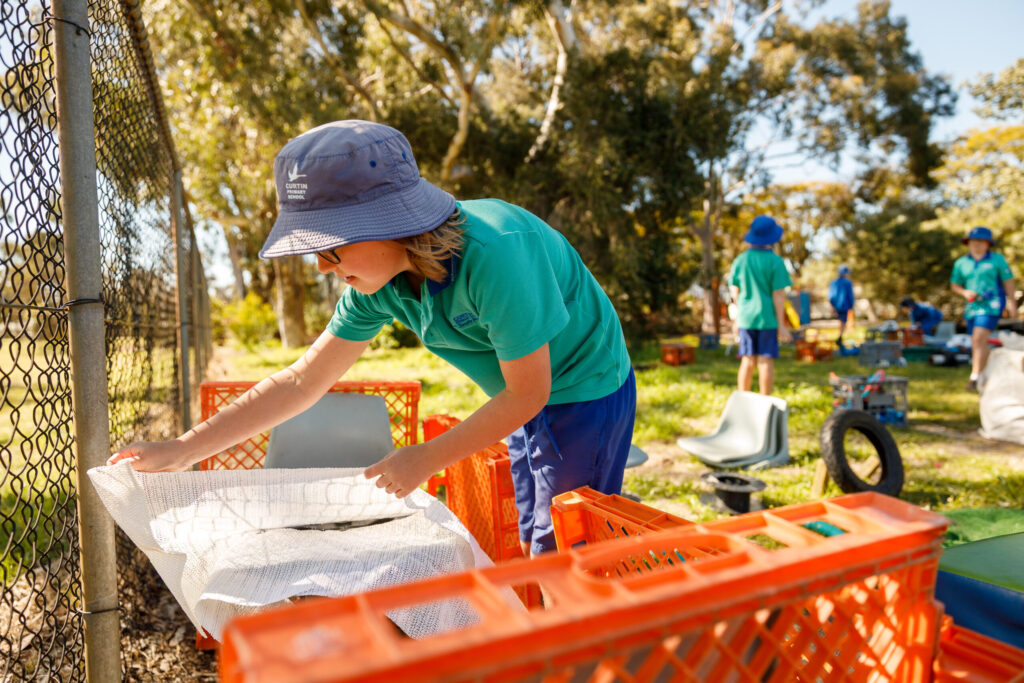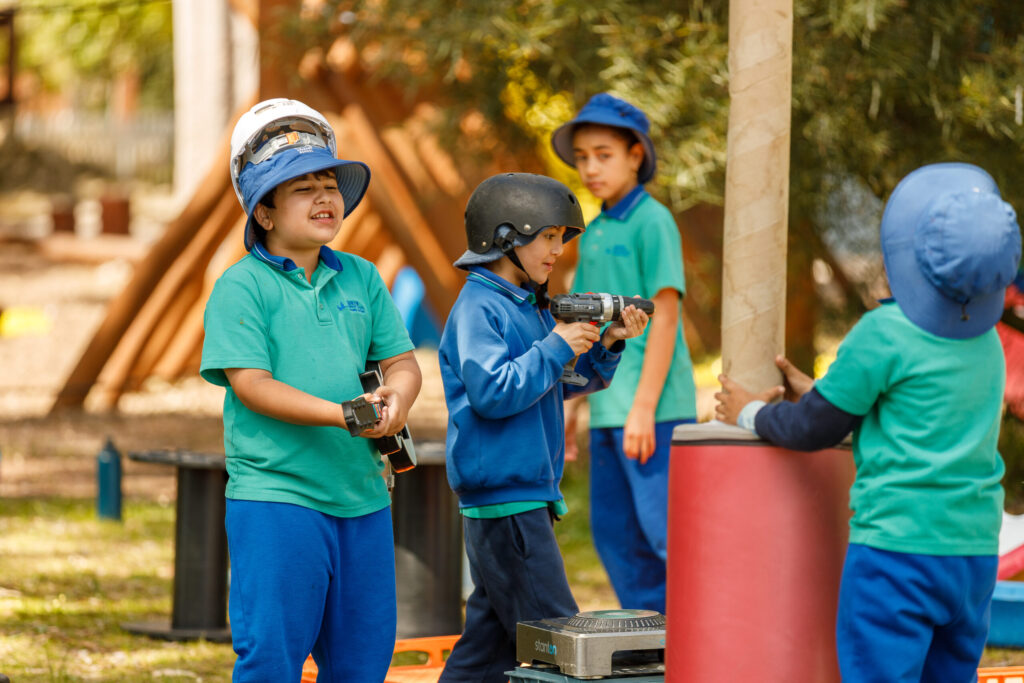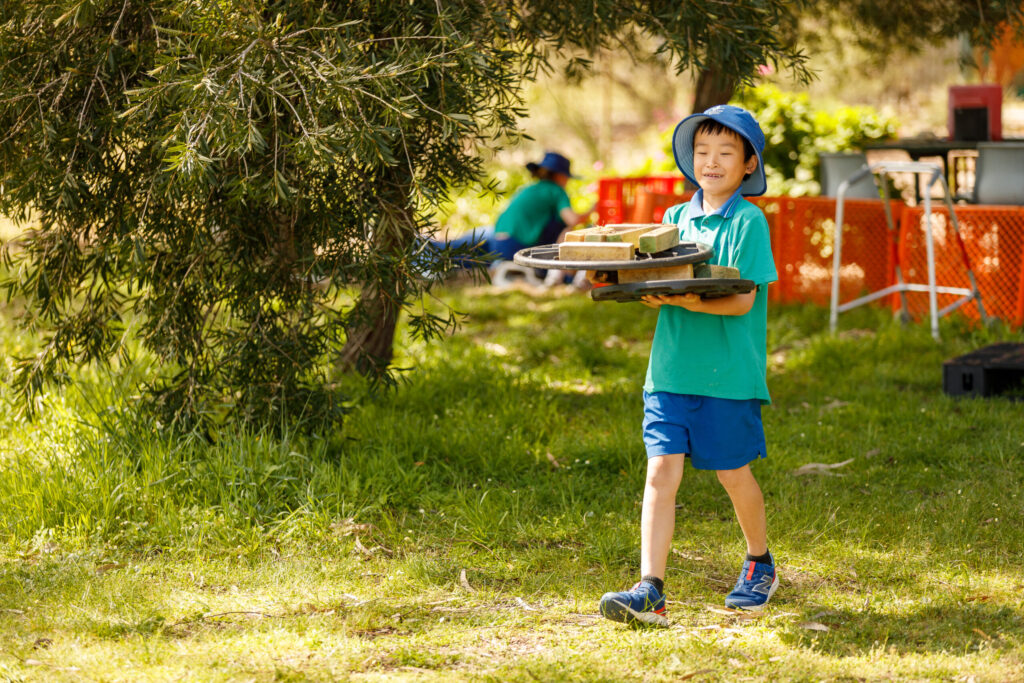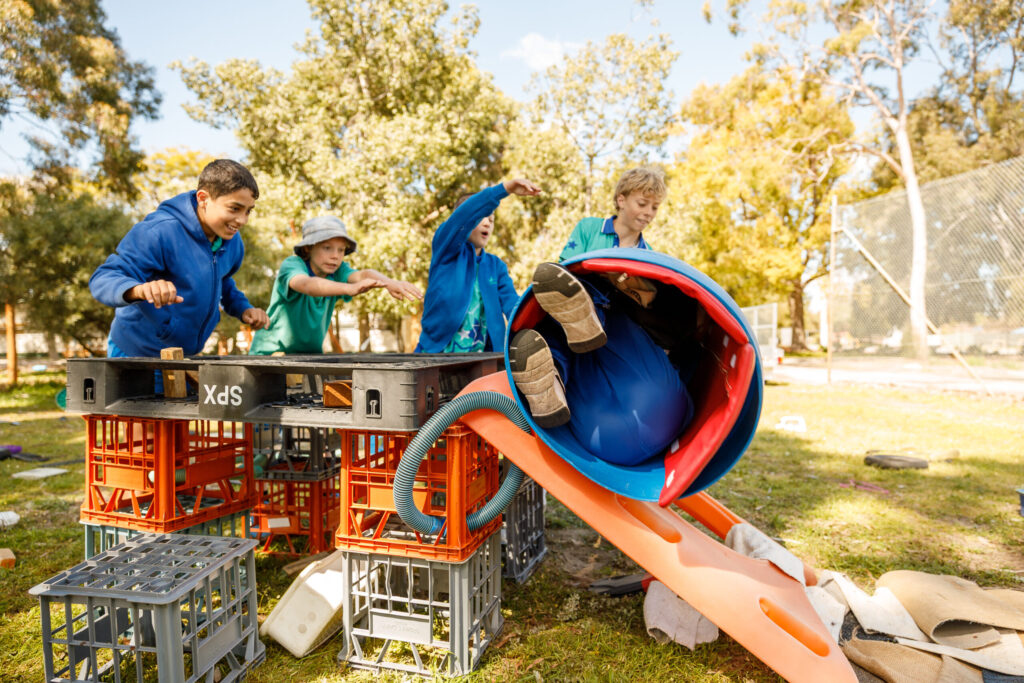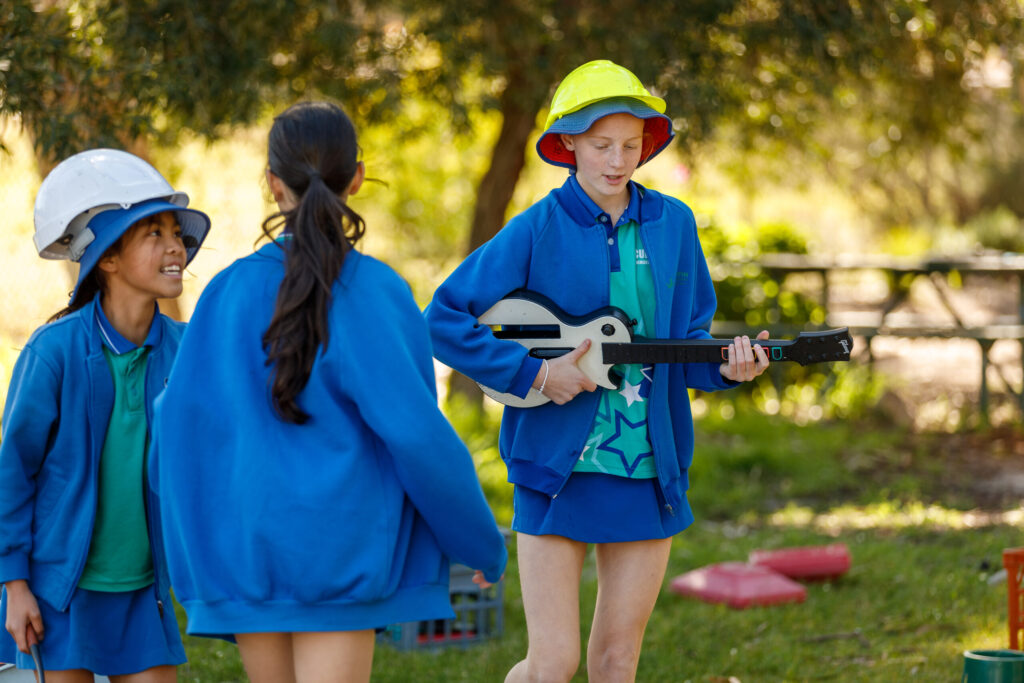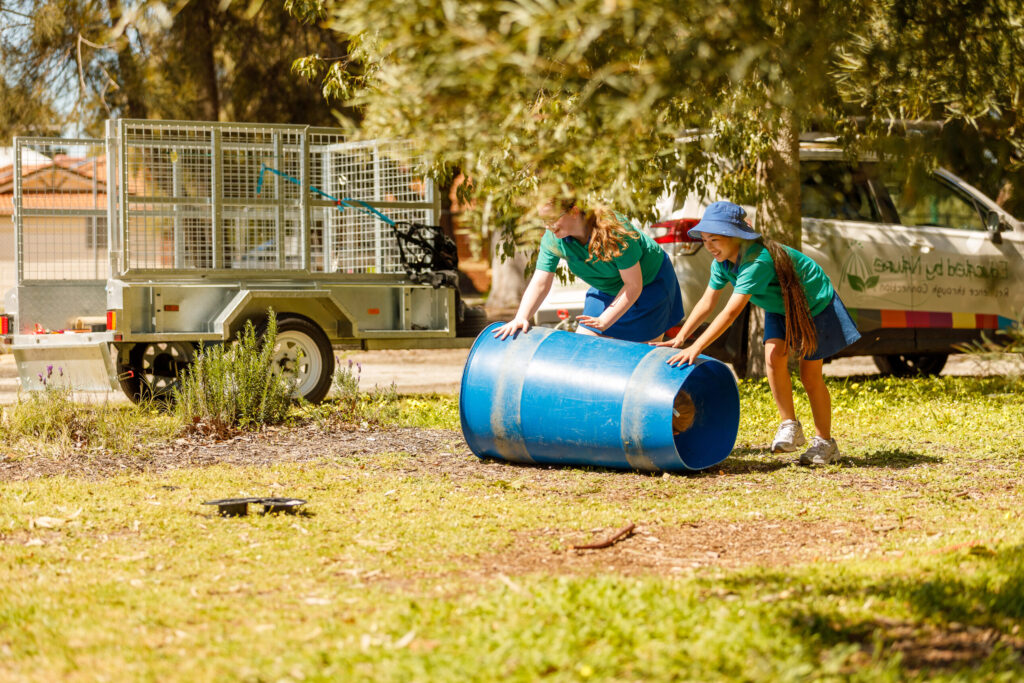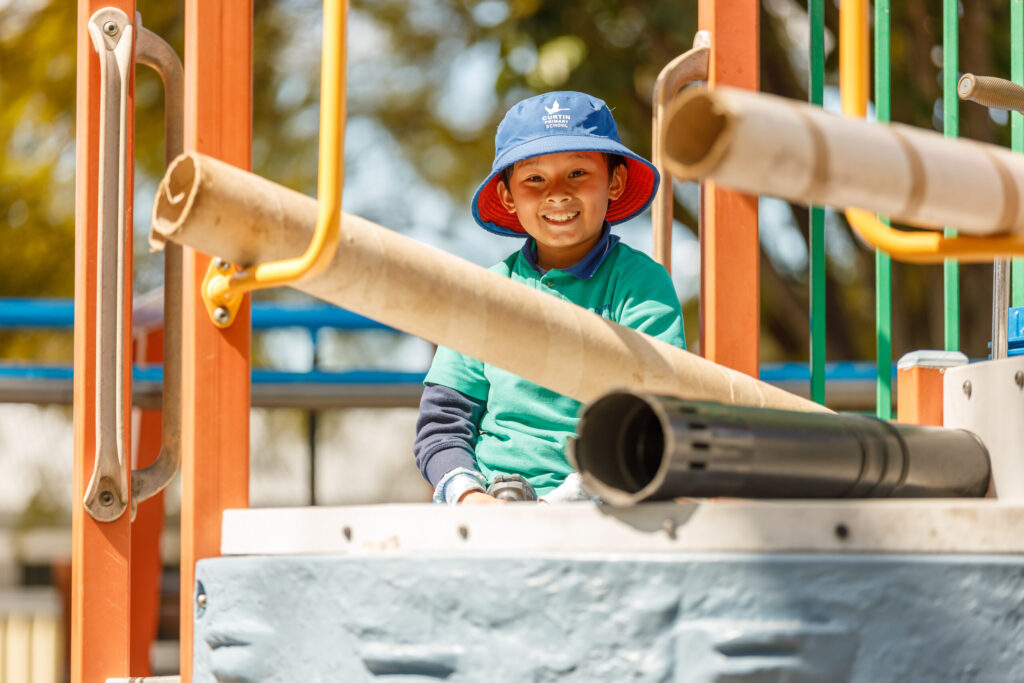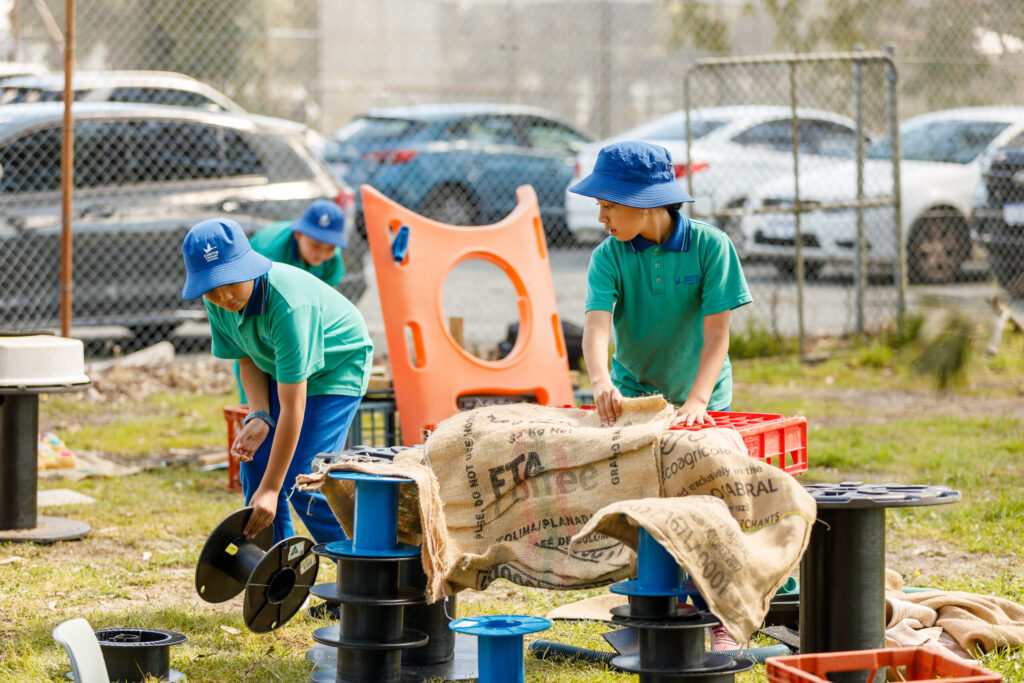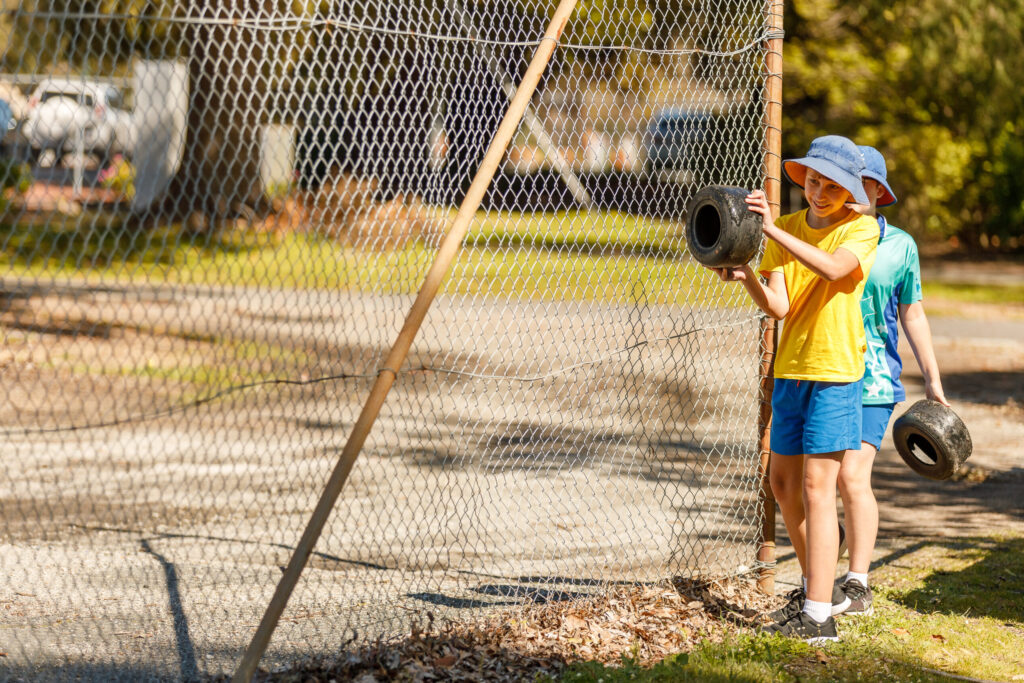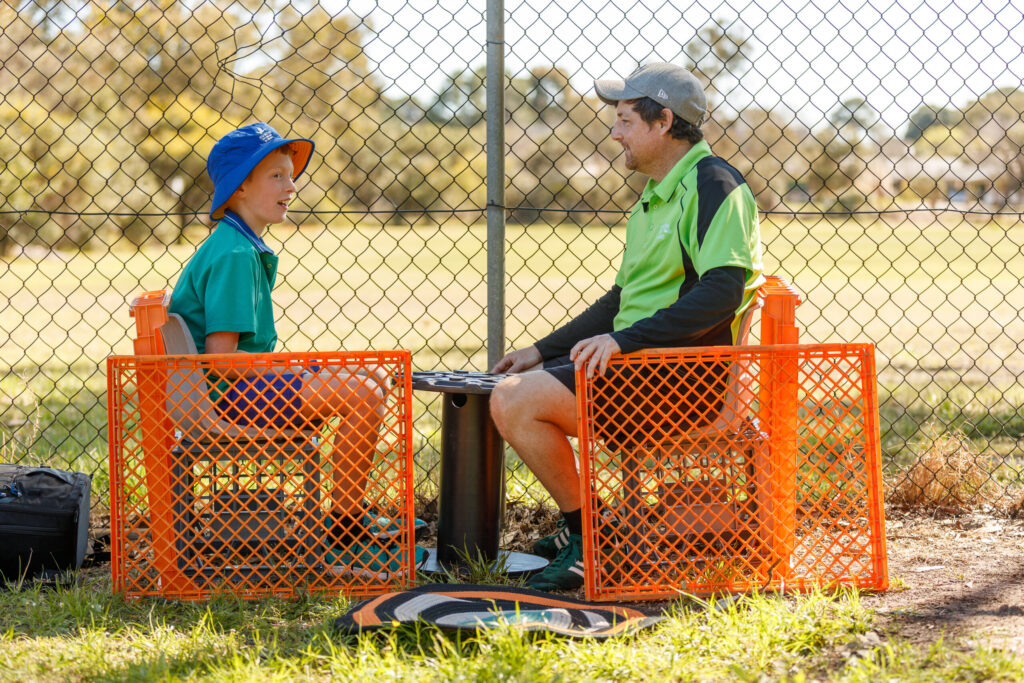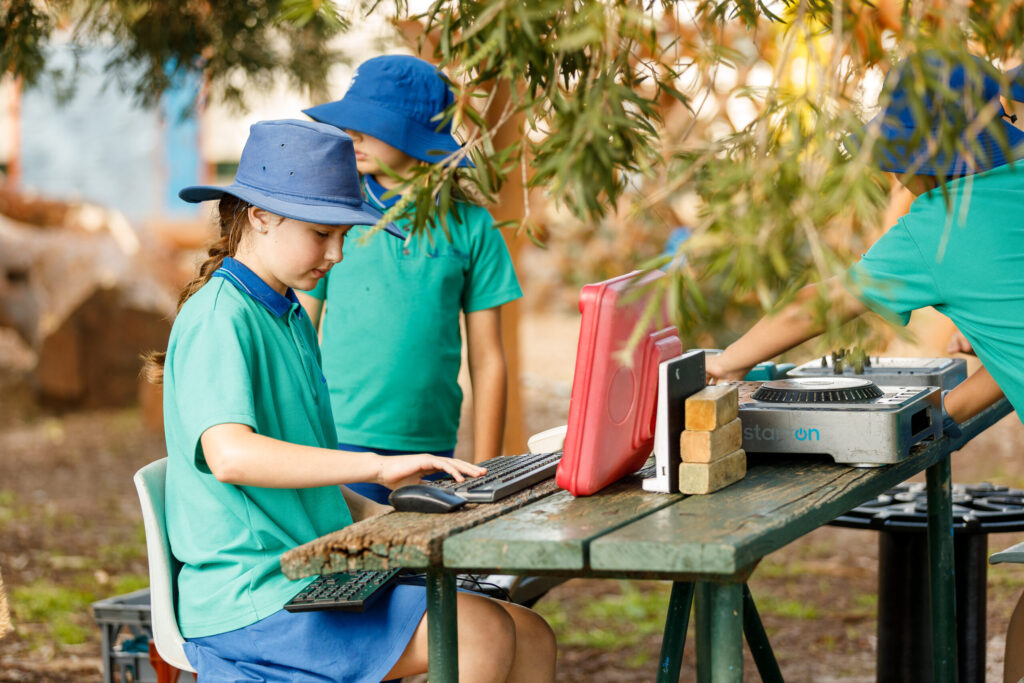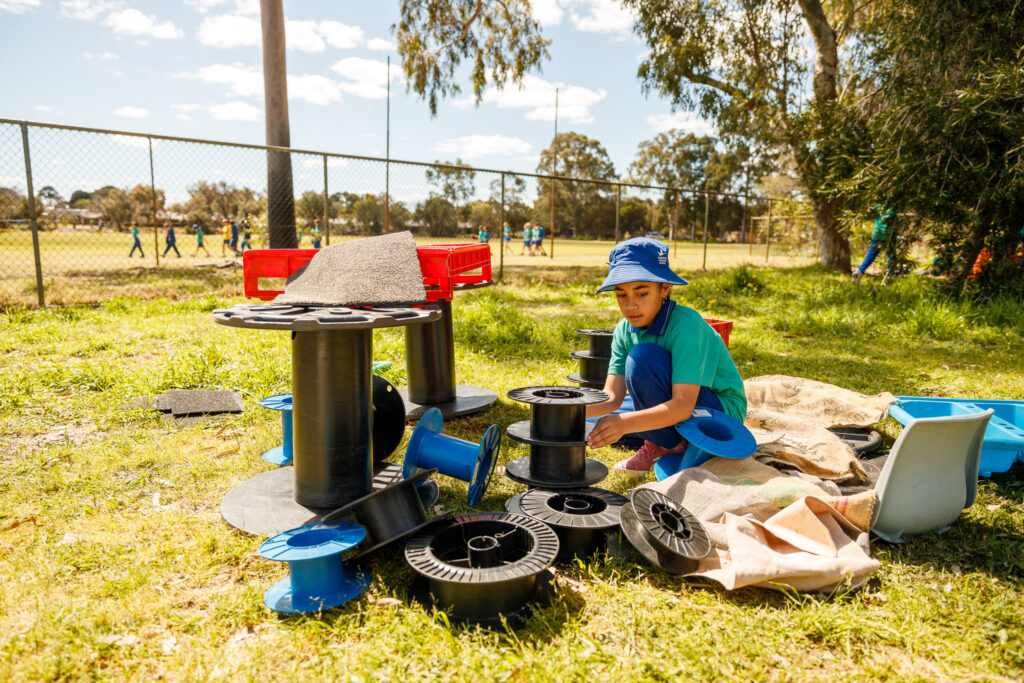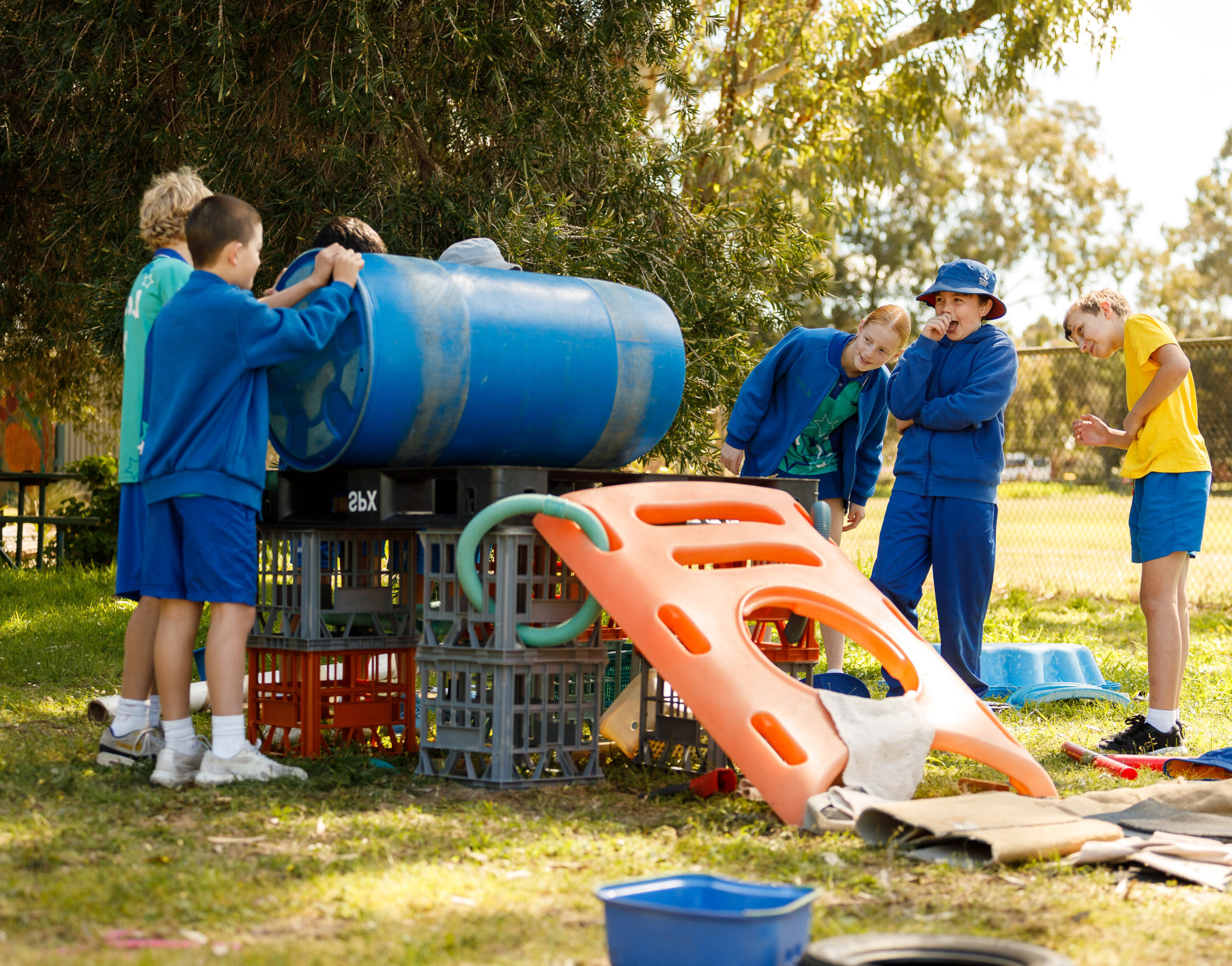
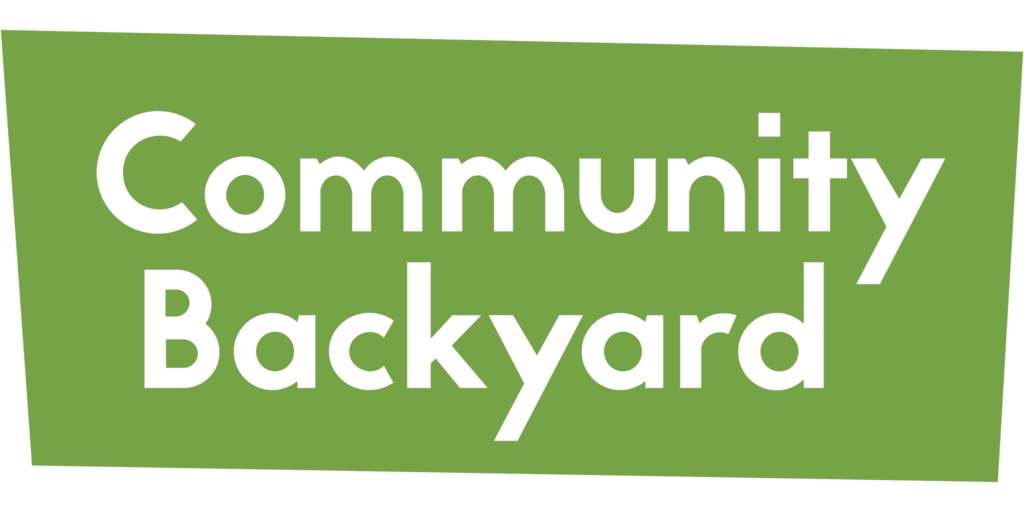
Educated by Nature is embarking on an ambitious new chapter in our organisation’s history.
We aim to establish a staffed community backyard (also known as an adventure playground) in Western Australia.
Every child in Australia has the right to play, and we believe it’s time to take meaningful, tangible steps toward building a strong Playwork infrastructure in WA. This playground will be a space where children’s freedom, creativity, and resilience are championed through self-directed, adventurous play.
Read on to find out more about our journey and get involved!
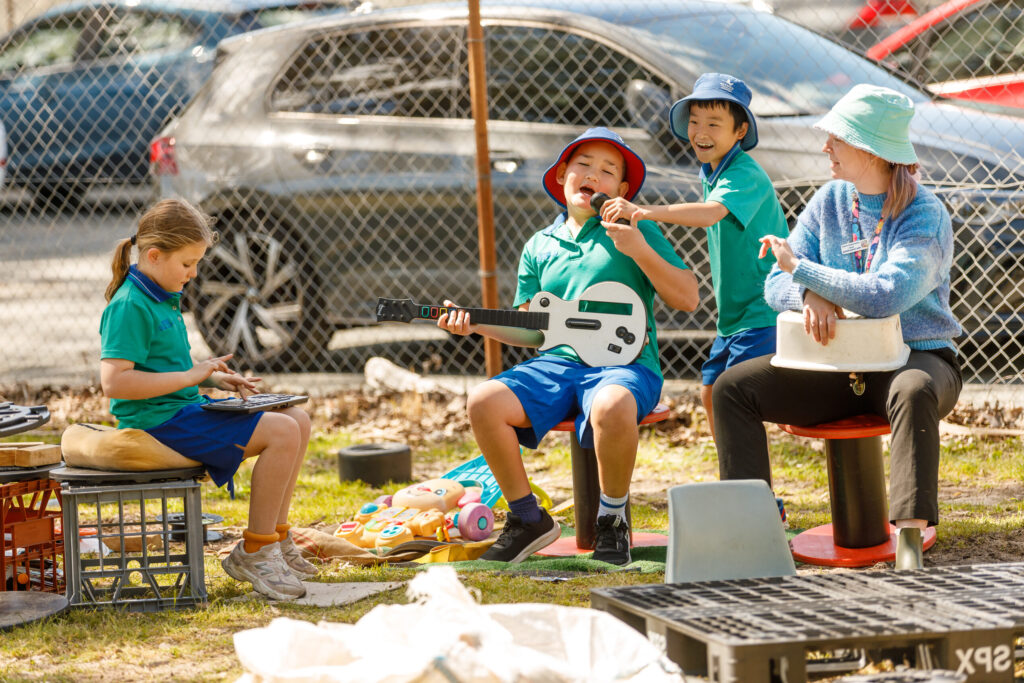
Philosophy
Community Playwork projects around the world exist to uphold and support children’s right to play, as outlined in Article 31 of the United Nations Convention on the Rights of the Child (CRC, 1989).
Community Backyards, like many Playwork projects, tend to be open access. This means that children are not required to stay on site for a predetermined amount of time. This flexibility respects children’s autonomy, allowing them and their families to come and go as they choose.
Such settings embrace the ethos of the ‘three frees’:
- The play space is free to attend.
- Children are free to choose what and how they play.
- Children are free to come and go of their own volition.
Community Backyards have some distinct features. Firstly, there are an abundance of loose parts available to children. Resources such as pallets, tyres, spools, tubes and anything else novel or interesting, foster a range of different play types and support children’s innate desire to want to manipulate and control their environment. Secondly, the concept of Self-Build is at the heart of model. As the term suggests, rather than playing with pre-determined structures, at community backyards, children and young people are empowered to construct their own spaces. With the guidance of staff, they use tools such as saws and hammers to build cubbies, forts, platforms and anything else they can imagine.
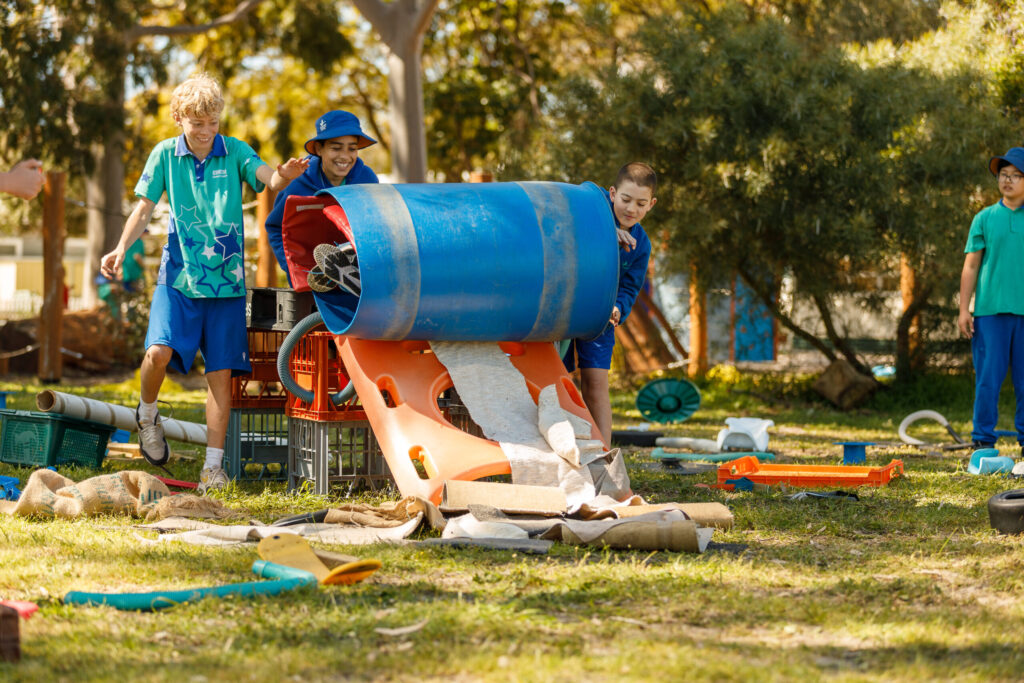
Background
The staffed community backyard movement began in Europe toward the end of World War II and gained momentum throughout the 1950s and 1960s. In the UK, advocates like Lady Allen of Hurtwood championed the creation of spaces that respected children’s freedom, creativity, and capacity to manage risk.
During the 1970s, community backyards entered a period of decline, largely due to unfounded concerns around litigation. Despite this, the model endured in some regions and has experienced a revival in recent years, driven by growing recognition of the fundamental role that play has in supporting children’s wellbeing and resilience.
While staffed community backyards continue to thrive in parts of Europe, the US, and Australia, no permanent version has been established in Western Australia. This project aims to change that, drawing on best practice to create a space that supports open access, child-led play in a local context.
Our inspiration comes from the likes of The Land, an Adventure Playground in Wales; as well as Cubbies, The Venny and Joomunjie Land, that are right here in Australia.
Our Community Backyard Team
Educated by Nature is uniquely positioned to bring Western Australia’s first permanent staffed community backyard to life.
We have spent the last ten years developing and running our nature-based programs such as KIN Village pop-up play spaces, self-build workshops, and loose-parts play sessions. From the very beginning we have engaged with the international community, being invited to share our work at conferences and bringing home insights from pioneering projects across the globe. By drawing on research-backed models, while tailoring approaches to the WA context, Educated by Nature is ready to create a vibrant, child-led space where freedom, creativity, and resilience are at the heart of play.
Jonny Neen
Program Development Manager
Jonny brings over a decade of experience to Educated by Nature’s community backyard.
Beginning his career in Wrexham, Wales, he managed community playwork projects and supported pioneering community backyards with training, qualifications, and inclusion programs. He also contributed to Wales’ landmark Play Sufficiency Assessment, the first of its kind globally. Since moving to Western Australia, Jonny has worked as an independent play consultant across the state. He is a qualified teacher and a part-time academic at Murdoch University where he researches and advocates for play opportunities.
With a blend of hands-on practice, policy insight, and community engagement, Jonny is uniquely positioned to lead the development of Perth’s first community backyard.
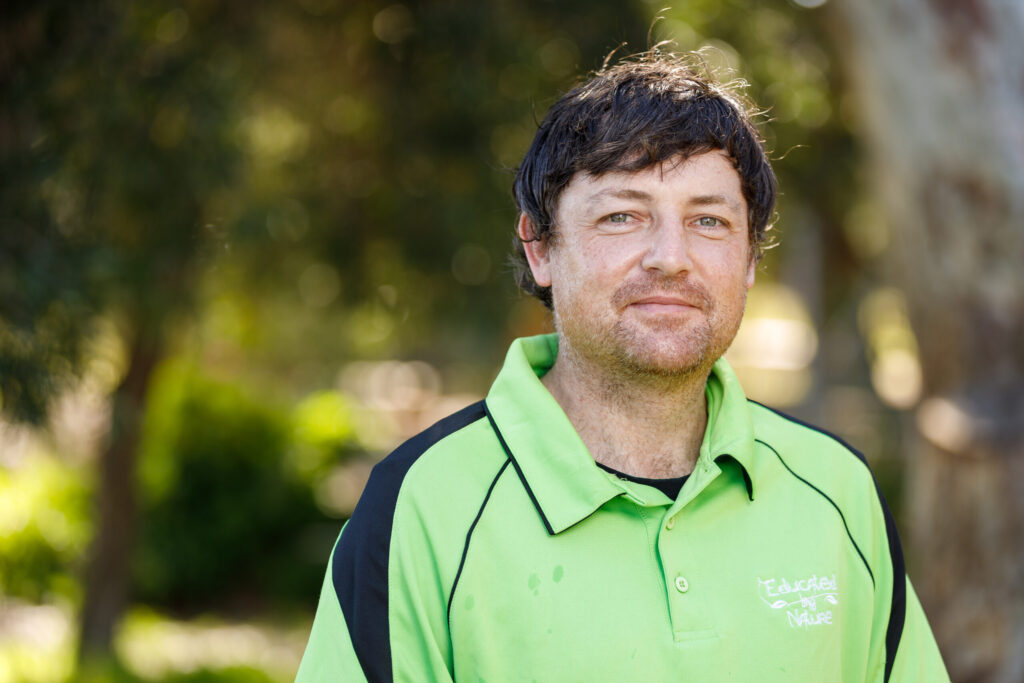
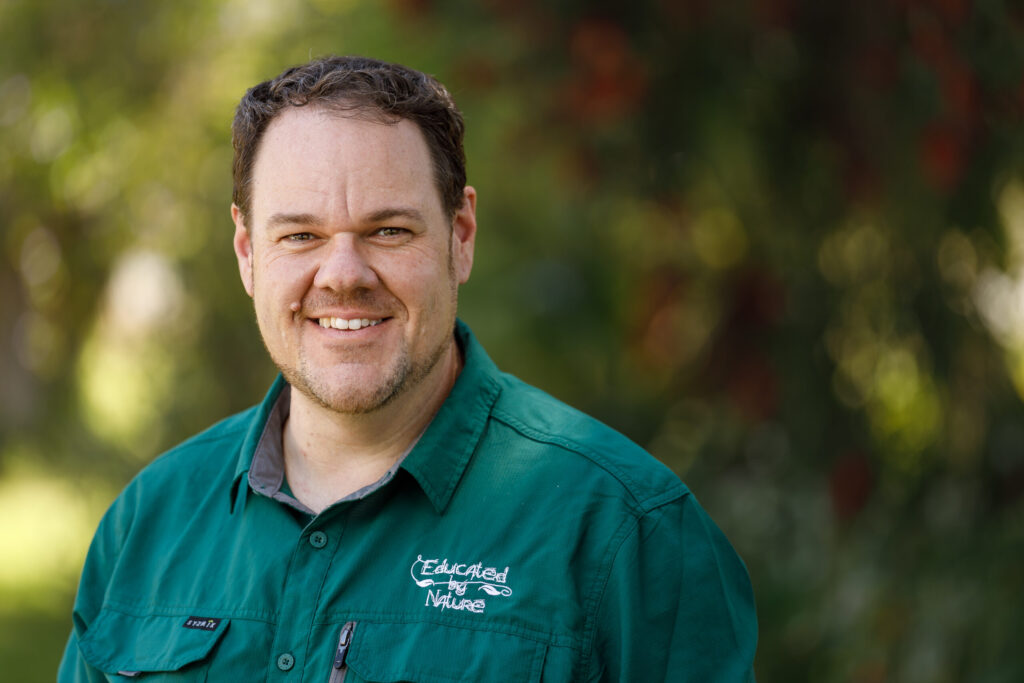
Daniel Burton
Co-Founder and CEO
Daniel has dedicated his career to creating environments where children thrive through play and nature connection.
In 2012, whilst working as teachers at Bold Park Community School, Daniel and Trudi activated a nature strip into an innovative outdoor classroom. The following year, Daniel undertook a study tour across Germany, Denmark and Sweden. He visited pioneering sites such as Kolle 37 Adventure Playground in Berlin, Rødovre Construction Playground in Copenhagen, and Skabersjöskolan in Malmö. These experiences deeply influenced the launch of Educated by Nature in 2014 and the creation of KIN Village as a pop-up community backyard model in Perth.
Daniel has since led further study tours in the USA, visiting The Yard in New York and Brightworks Tinkering School in San Francisco. As a keynote speaker at national and international events – including the IPA World Conference in Scotland, IPA USA in Denver, and Australia’s Planning for Play conference – Daniel continues to advocate for adventure play, self-build projects, and children’s right to play.
Isaac Wetherley
Operations Manager
Isaac brings extensive hands-on experience in playwork, community engagement and adventure-based learning to this project.
Over the last eight years, Isaac has developed and ran programs for children, teenagers and adults, helping them connect with nature. He shares this experience at conferences, most recently co-presenting a Masterclass on KIN Village as a Form of Pop-Up Play at the International Play Association Asia Pacific Conference.
Outside of Educated by Nature, Isaac serves as Deputy Chief Commissioner Youth Support with Scouts WA, where he engages communities to empower young people through adventure, skills development, and time outdoors.
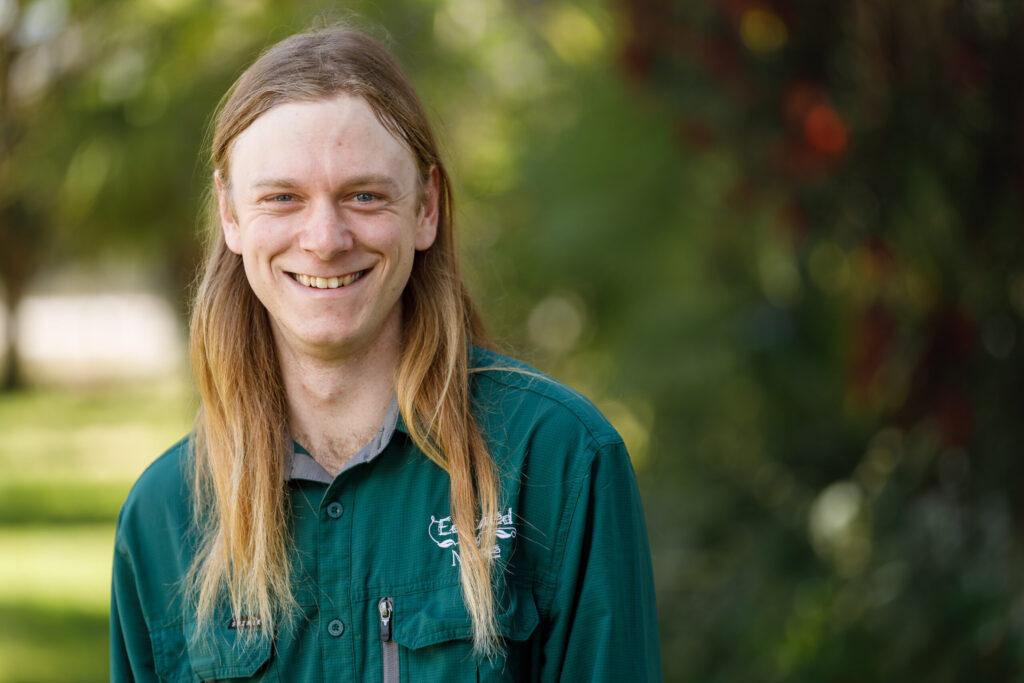
The Project So Far
2024
Need Identified
Jonny’s research demonstrates that we need greater Playwork infrastructure in WA.
Research Trip
Daniel spends a day as a Playworker at Yard PlayGround :NYC, a pioneering adventure playground in the USA.
Pilot Project
Educated by Nature establishes a successful Self-Build project at Guildford Grammar School.
2025
Research Trip
Jonny visits Joonmunjie Land, an Adventure Playground in Queensland.
Australian Institute of Play
Educated by Nature forms a working partnership with the Australian Institute of Play.
Research Group Forms
Educated by Nature establishes a research group for the community backyard with representatives from Murdoch and UWA.
Play Australia
Educated by Nature forms an auspice agreement with Play Australia, a non-for-profit organisation and the peak national advocacy organisation for play in Australia.
Funding
Funding for the project is under review.
Support Us!
The Community Backyard project relies on external funding and resources to operate. We appreciate support in many realms: financial, equipment, space and community development. If you can help or are interested to learn more, please get in touch.
Frequently Asked Questions
Is it safe?
Staffed community backyards tend to have lower rates of injury than organised sport and traditional playgrounds. Risk and challenge are characteristics of play and children have an innate desire to experience and manage it. Playworkers are trained to balance risk with the developmental needs of children.
Where will the play space be?
We aim to deliver this project in an area of need. This will be determined by funding and strategic priorities.
What are the outcomes?
From a rights-based perspective, play is the outcome, in and of itself. Play also has a plethora of developmental outcomes of a social, physical, intellectual, cognitive and emotional nature. It supports the refinement of adaptative systems that are essential to well-being and resilience. Part of this process involves the development of peer and place attachments, fostering deep connections to the human and physical environment; ultimately supporting social and environmental sustainability.
How will it be funded?
We are currently awaiting the outcome of certain funding applications and proposals, but we welcome funding

